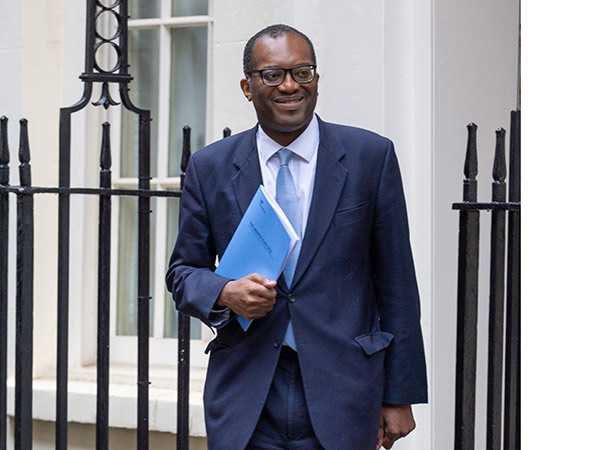Chancellor Kwasi Kwarteng has just delivered his mini-budget statement to MPs with tax cuts and a reversal of Sunak’s national insurance and corporation tax hikes.
Delivering his Growth Plan 2022 to the House of Commons, Kwarteng said the proposed increase in corporation tax to 25% would be cancelled, which he said would “plough almost £19 billion a year back into the economy”.
The Chancellor also pledged to cut taxes for business in certain specific areas for 10 years and said he was in talks with 38 local authorities across England to set up investment zones.
Kwarteng also said he would throw out the reforms to the IR35 rules, which relate to how contractors are paid, so eliminating “unnecessary complexity”.
The Chancellor said that he would also keep in place the £1m tax relief on plant and technology investment, which was due to return to £200,00 next March.
Kwarteng announced a cut in the basic income tax rate from 20% to 19% from April 2023 and the abolition of the 45% higher rate of income tax.
He announced he would reverse former Chancellor Rishi Sunak’s National Insurance increase from November 6, which is expected to save 28 million people around £300 a year and over 900,000 businesses around £10,000 a year.
Speaking on energy bills, the Chancellor announced he is scrapping the previously announced rise in the energy cap and said he would introduce a price guarantee that would not exceed £2,500 for 24 months from October.
Stamp duty will also be cut permanently from today (September 23). The threshold at which tax must be paid goes up from £125,000 to £250,000. First-time buyers will also be able to claim stamp duty relief on properties up to £625,000, rather than the previous £500,000.
Duty hikes previously planned on beer, wines and spirits were also cancelled.
Reacting to the mini-budget from the KBB industry was Tom Reynolds, chief executive of the Bathroom Manufacturers Association. He said: “The headwinds in the economy, particularly around energy, have been a cause for concern for many companies across the sector. If the tax cuts in the mini-budget succeed in injecting confidence into the marketplace, it will be very welcome indeed. We’ll have to wait and see if this major shift in fiscal policy achieves its desired effect.
“The reversal of the NI increase will be universally well-received by employers, by offering some relief to under-pressure wage bills. The biggest concern for bathroom manufacturers will be the instant reaction of the financial markets to the Chancellor’s statement, with the pound dropping to yet another low against the dollar. This is critical as so many imported components and finished goods are traded in dollars, so a weak pound drives inflation and squeezed margins in our industry.”
At the British Retail Consortium, chief executive Helen Dickinson broadly welcomed the budget. She said: “The Chancellor’s announcements should help to shore up consumer demand going into what will be a challenging winter for households and businesses alike. The Energy Bill Relief Scheme, set out earlier this week, and announcements on National Insurance and Corporation Tax will help retailers shield their customers from some of the effects of inflation. Furthermore, we welcome the reintroduction of tax-free shopping for tourists, which will boost sales and bring the UK back in line with other European nations.”
But Dickinson was critical that the budget did not address the issue of business rates. She added: “Retailers are facing immense cost pressures, not just from energy bills, but also a weak pound, rising commodity prices, high transport costs, a tight labour market and the cumulative burden of Government-imposed costs. Yet what was missing from today’s announcement, was any mention of business rates, which are set to jump by 10% next April, inflicting another £800 million in unaffordable tax rises on already squeezed retailers. It is inevitable that such additional taxes will ultimately be passed through to families in the form of higher prices. There is still time for the Government to act. Freezing the business rates multiplier will stimulate investment and will allow retailers to focus on what’s important – keeping prices down for households.”
At the Federation of Small Businesses, policy chair (Wales) Ben Francis was pleased to see measure that would help small firms. He said: “The announcement today brings forward some much-needed clarity for the future for the small firms who have been facing strong competing headwinds. We are pleased to see the Government signalling its determination to back small firms.
The growth plan announced today will go some way to ease the burden small businesses have been facing. We are pleased to see many of our calls heeded, including the decision to reverse the NIC hikes introduced in April. Reversing all four, employer, employee, self-employed and the dividend equivalent is the right decision, as is the scrap of the Corporation Tax increase. This will provide some crucial breathing space for firms.”

